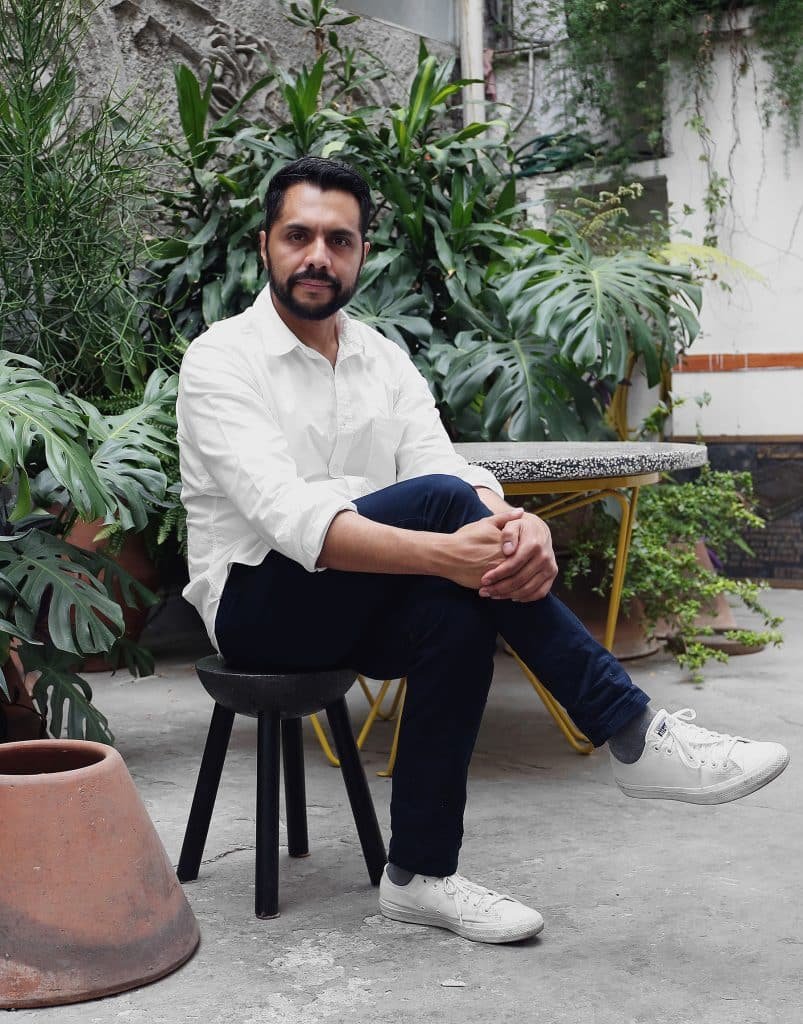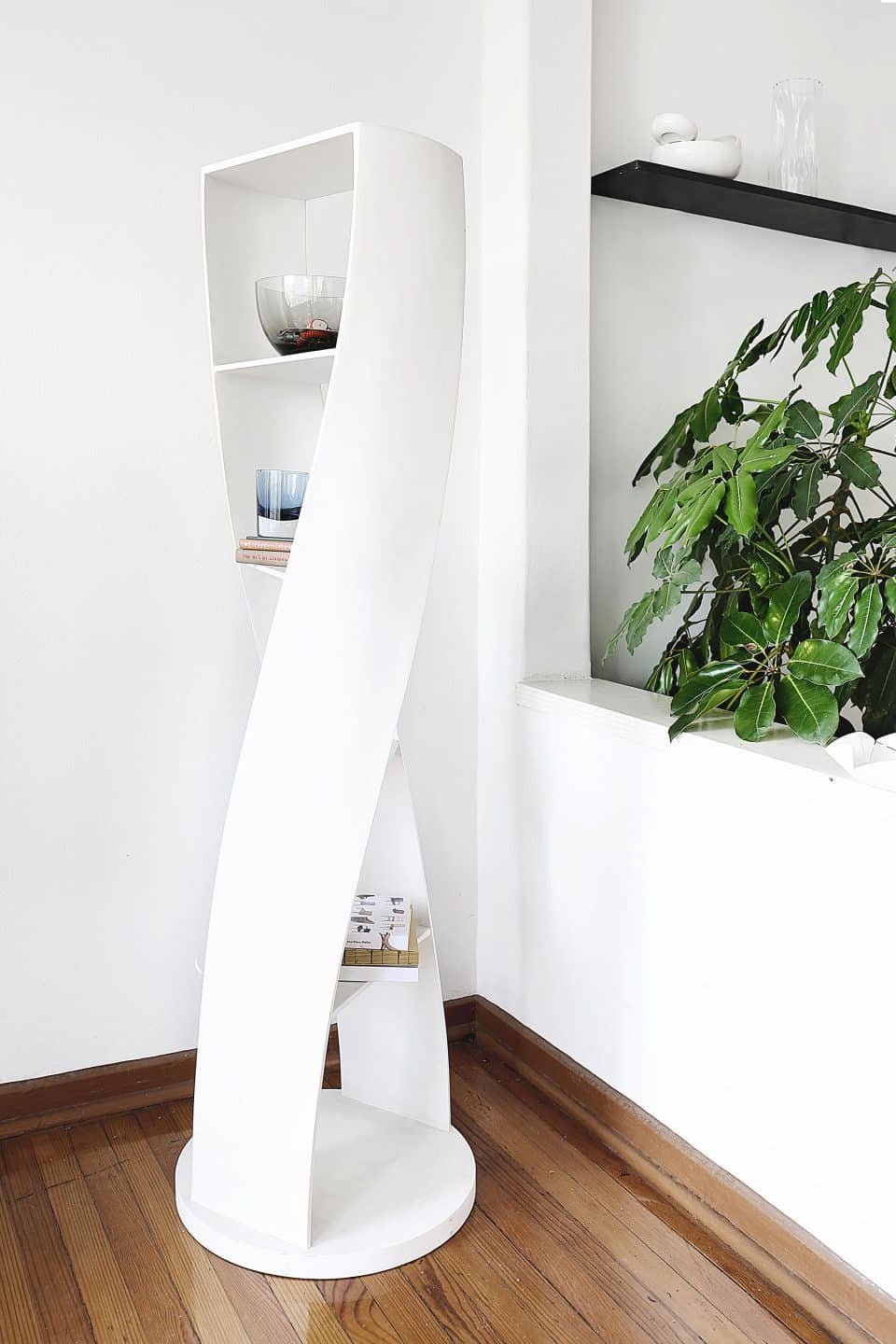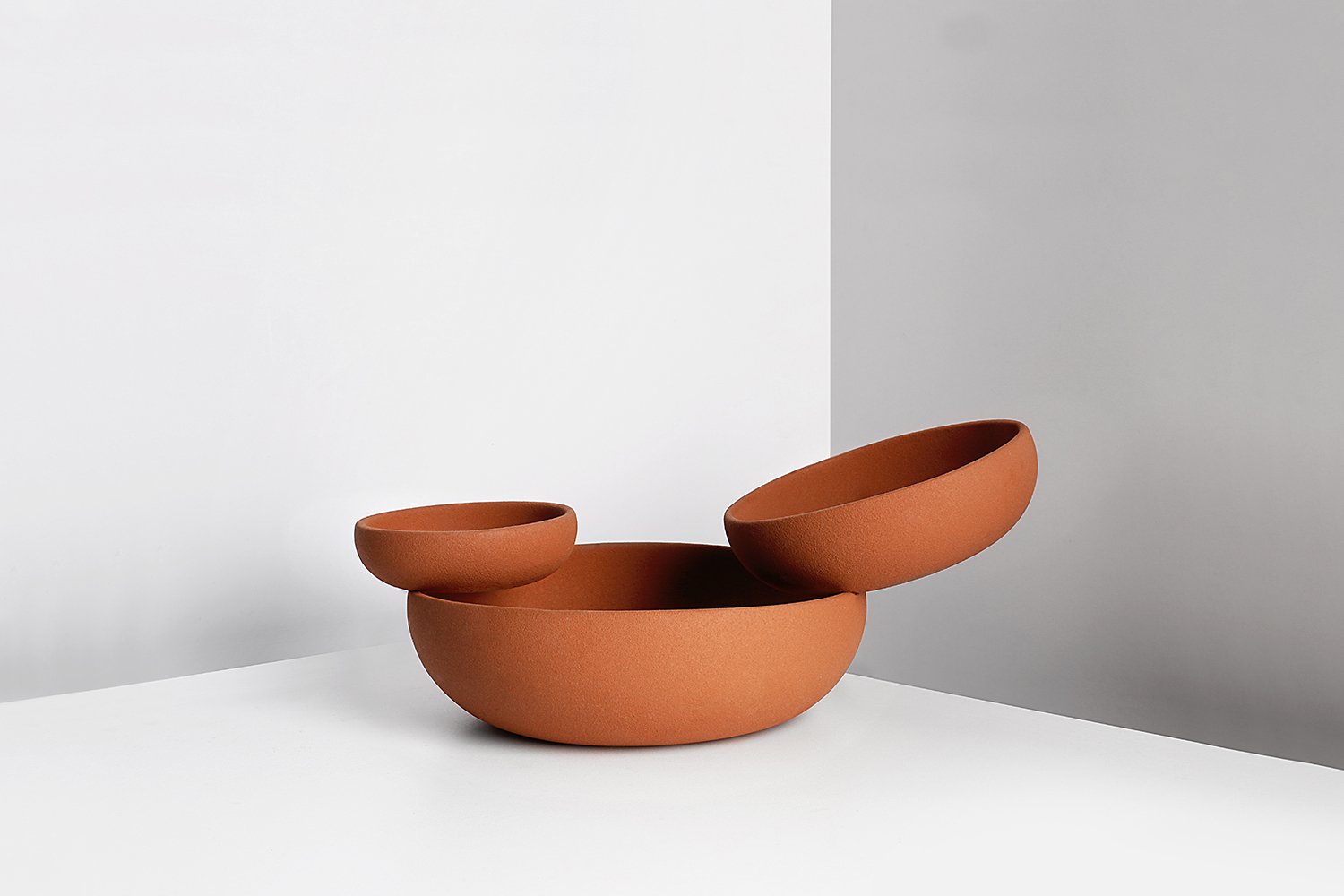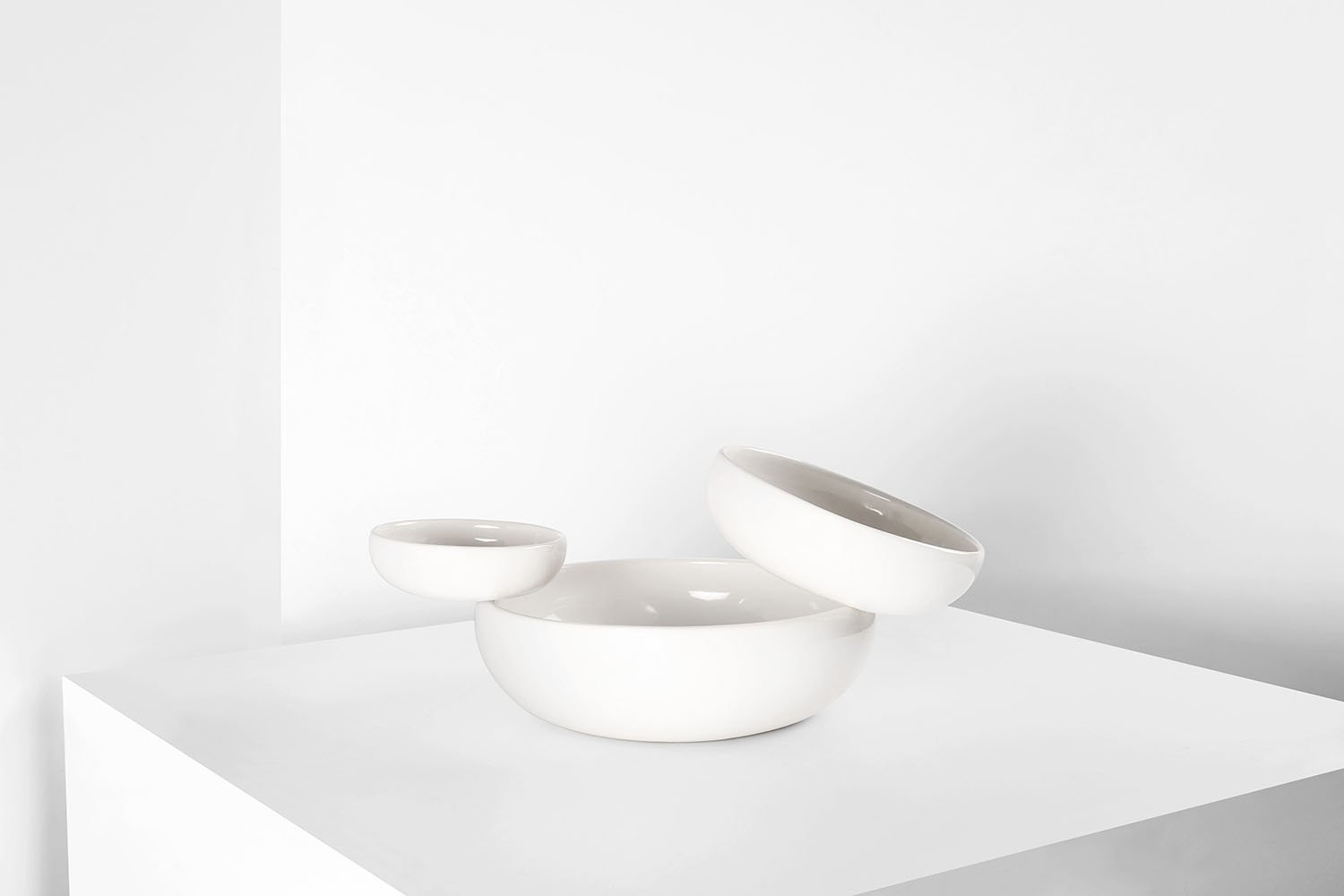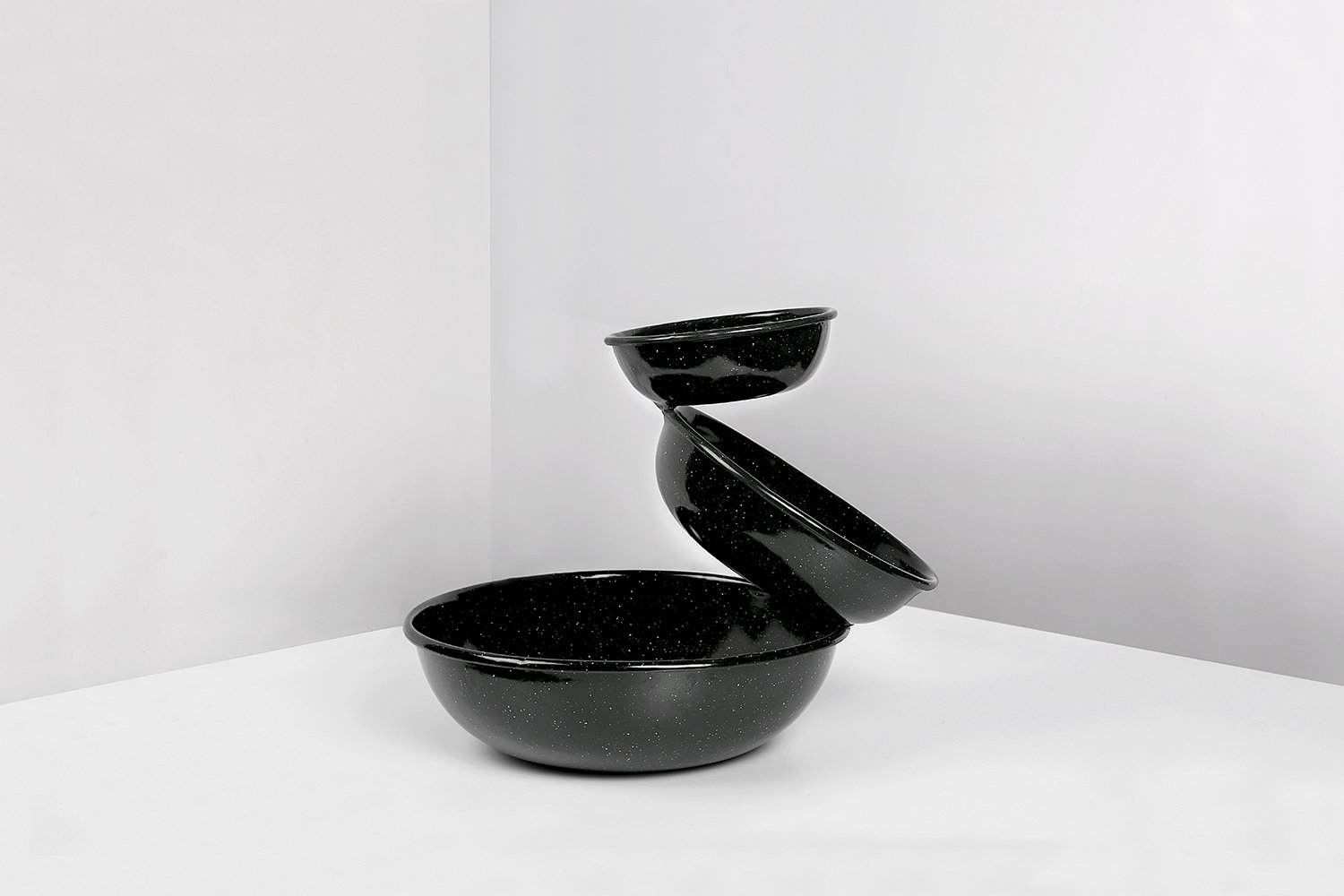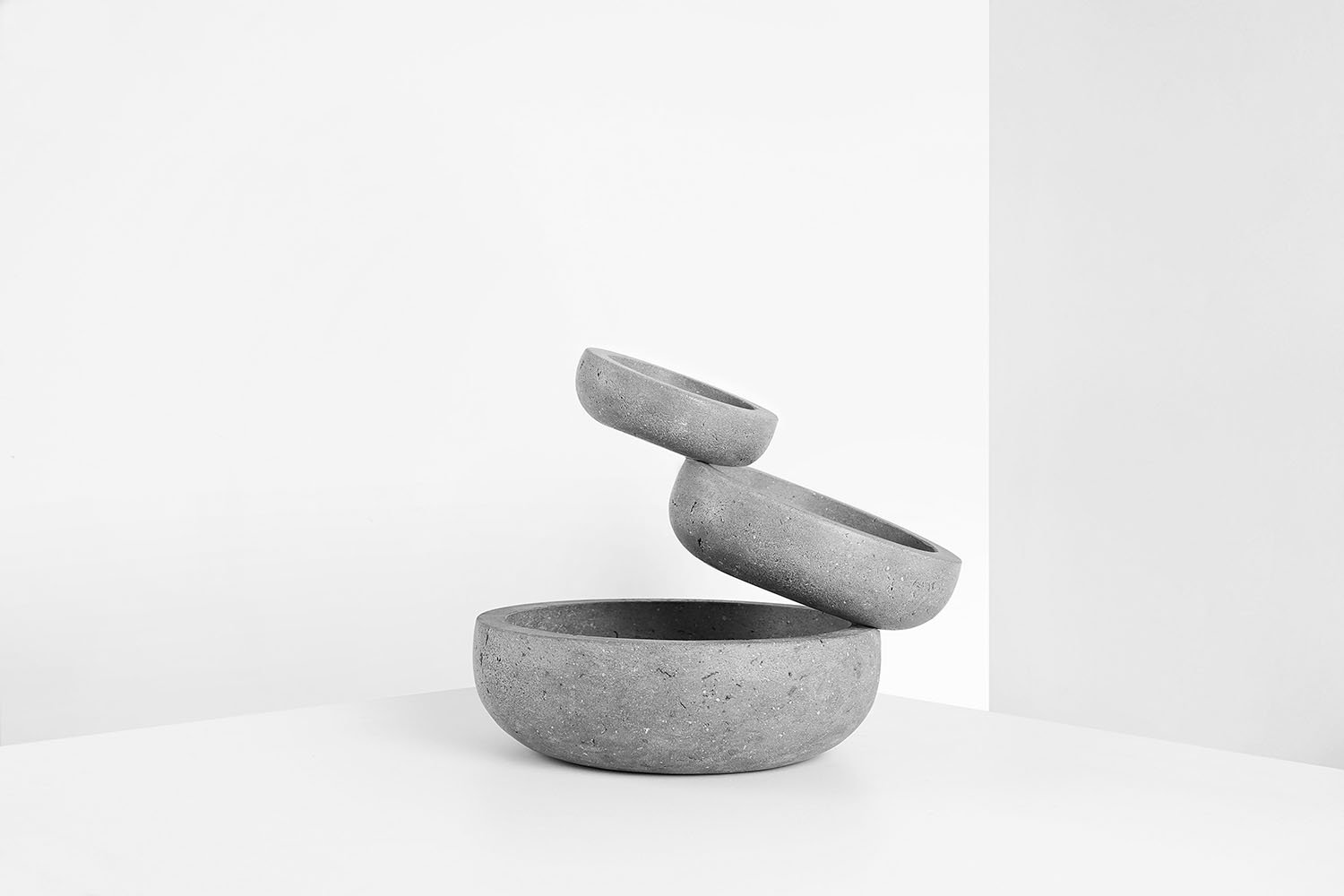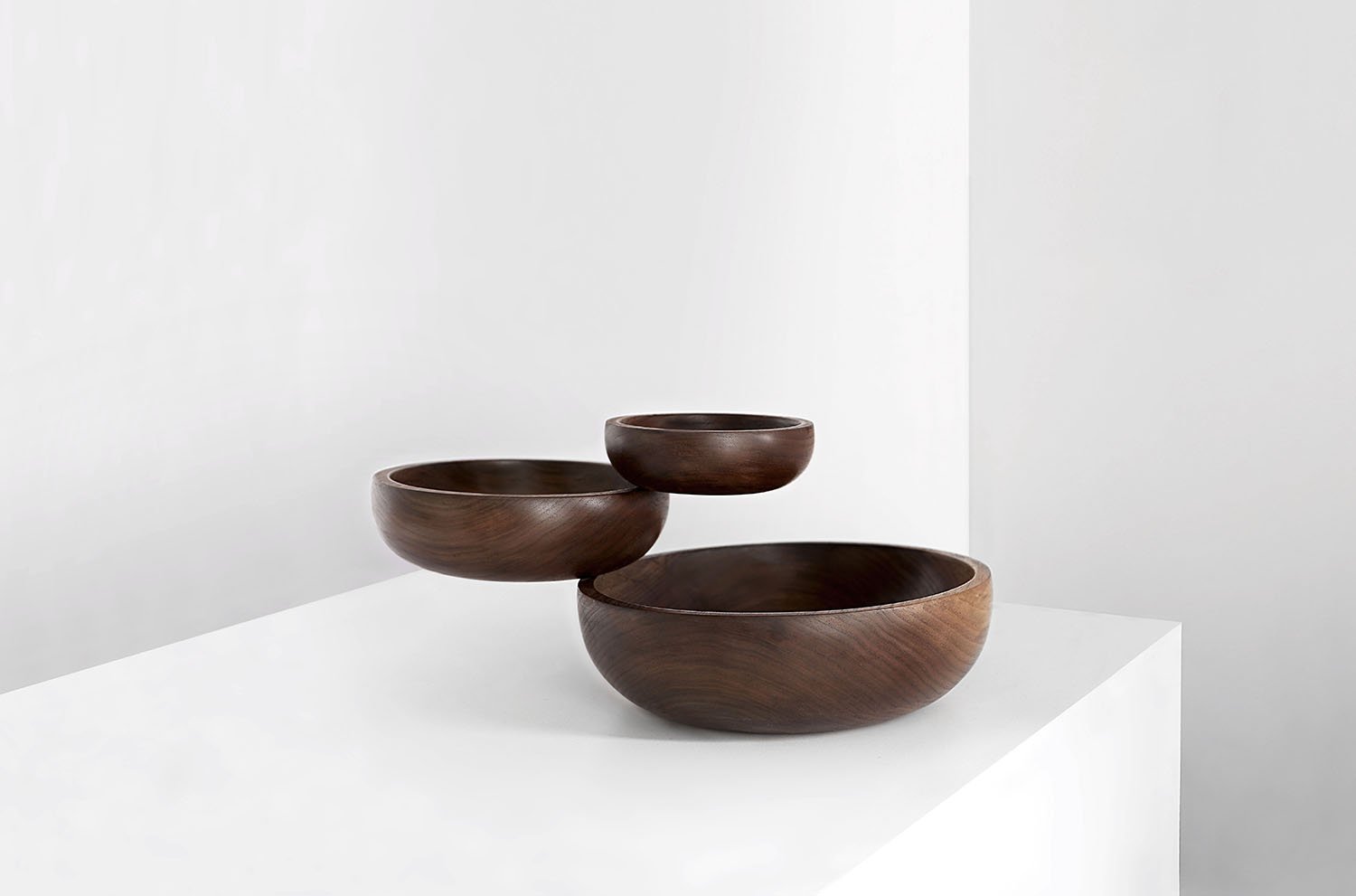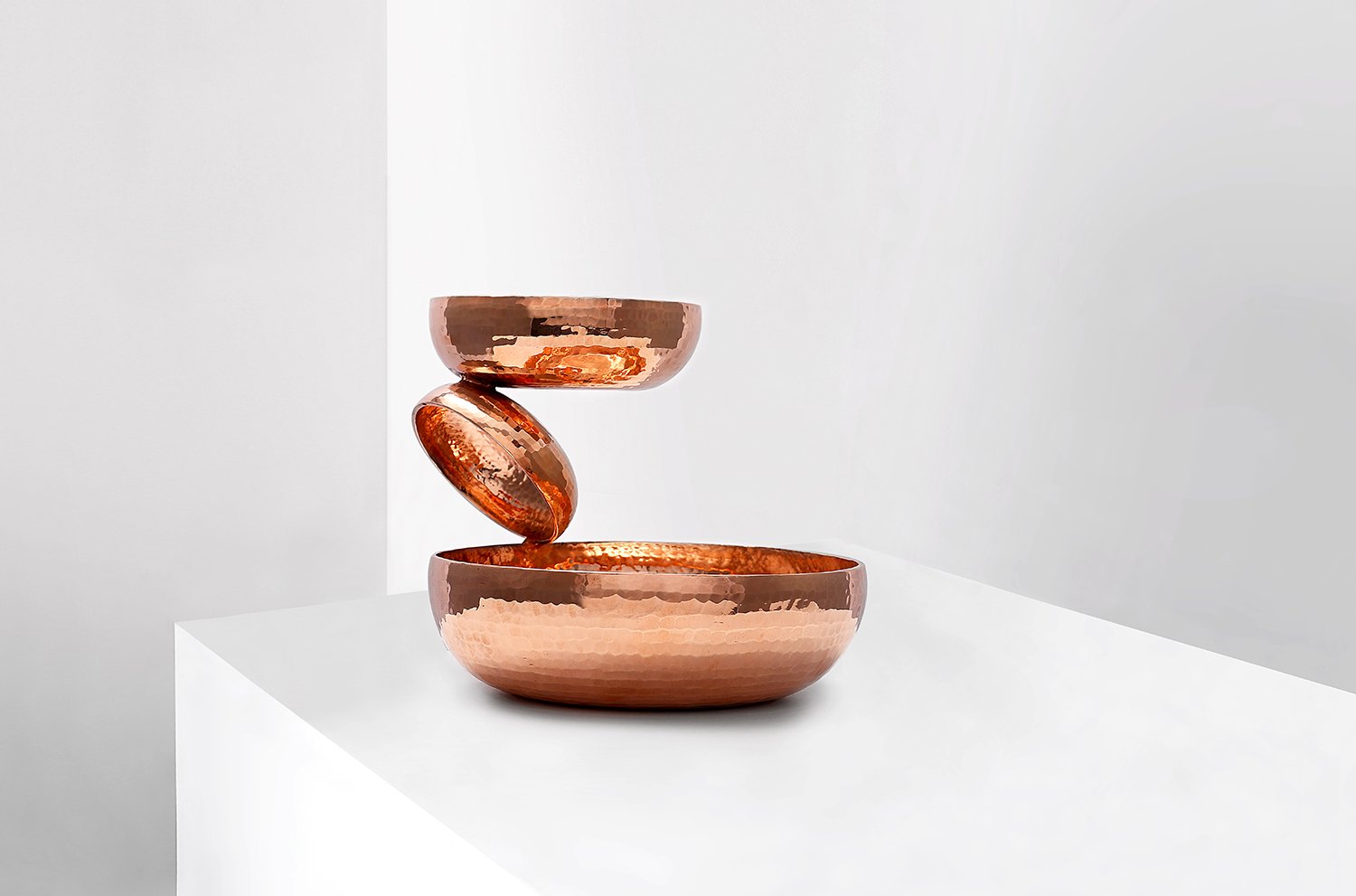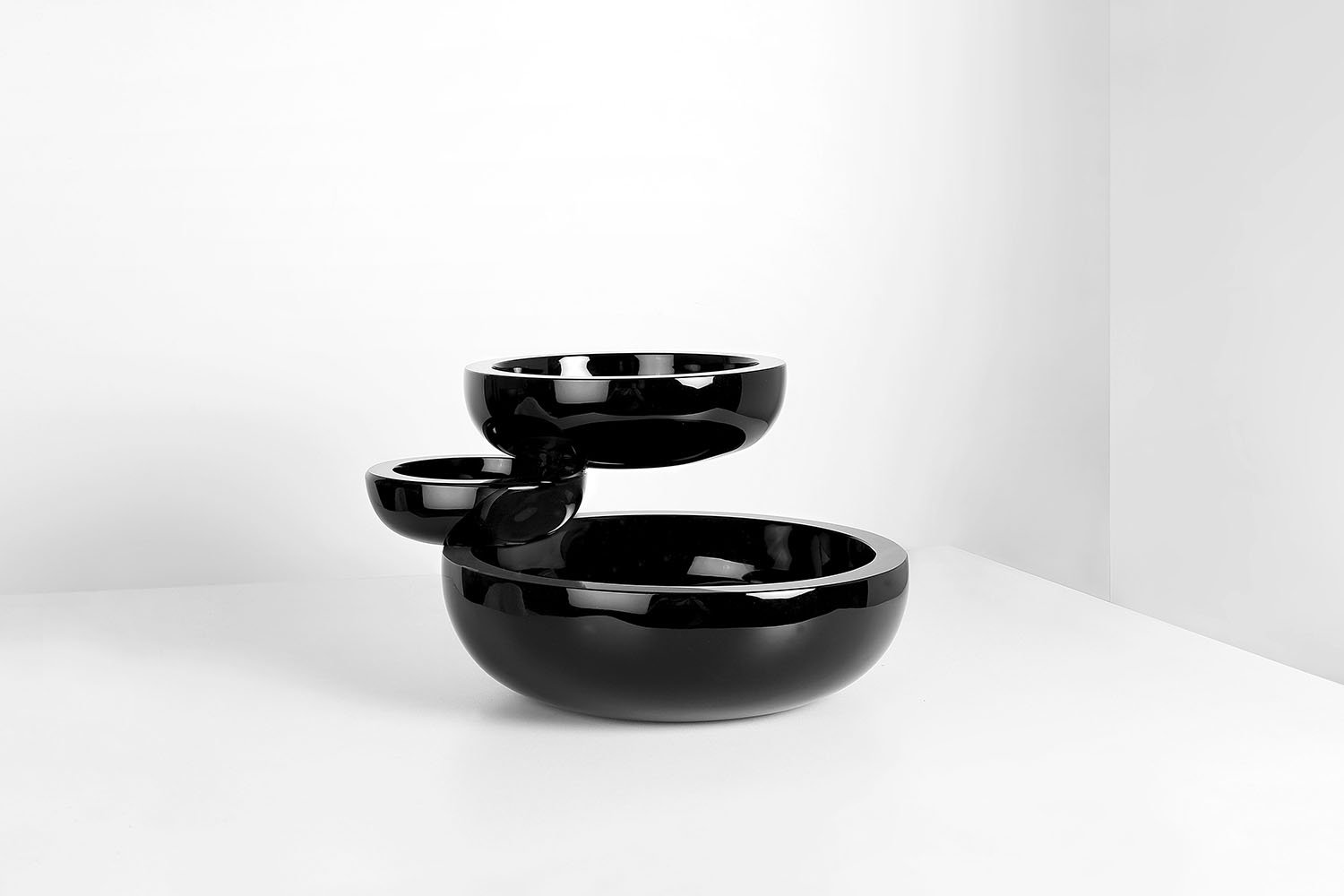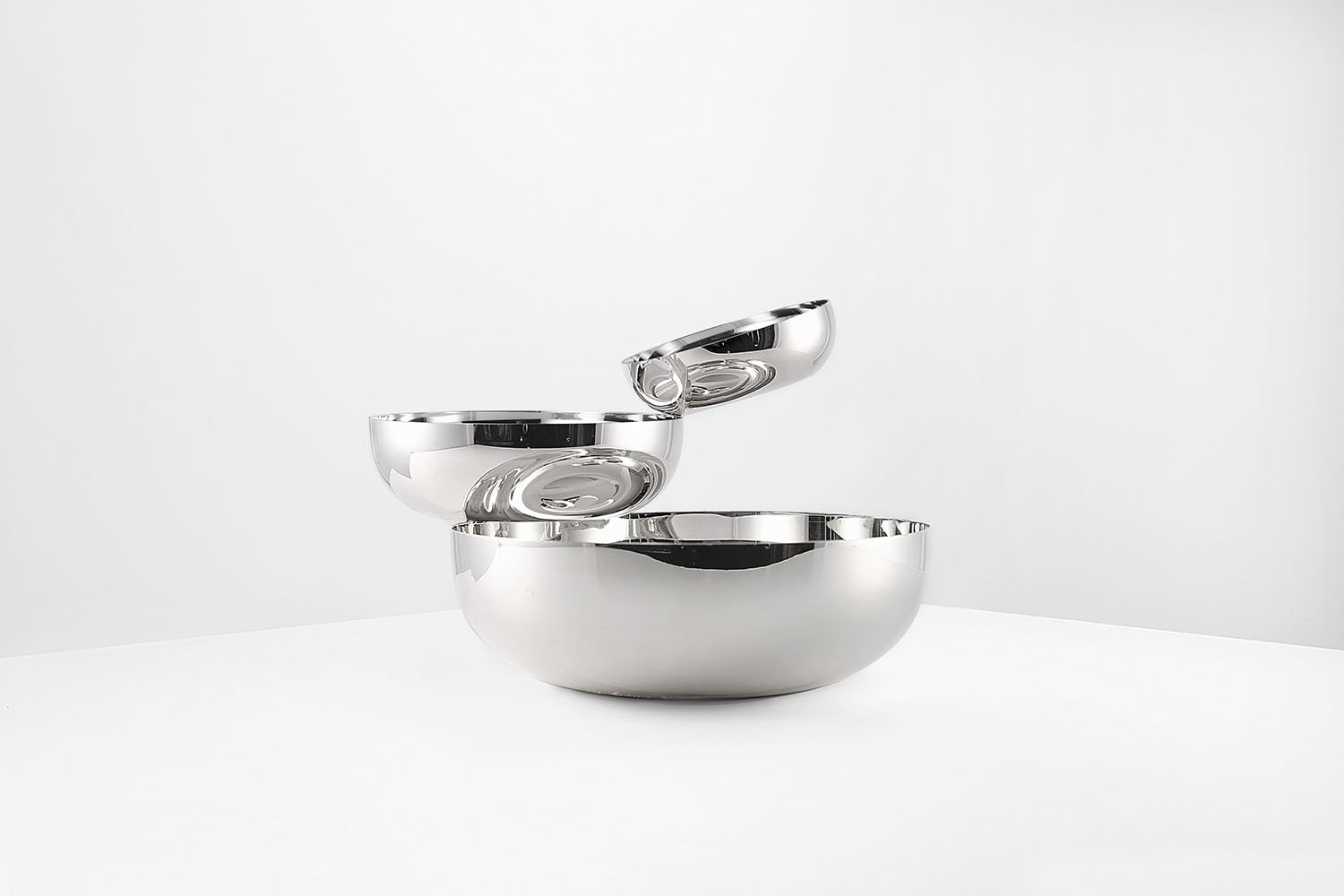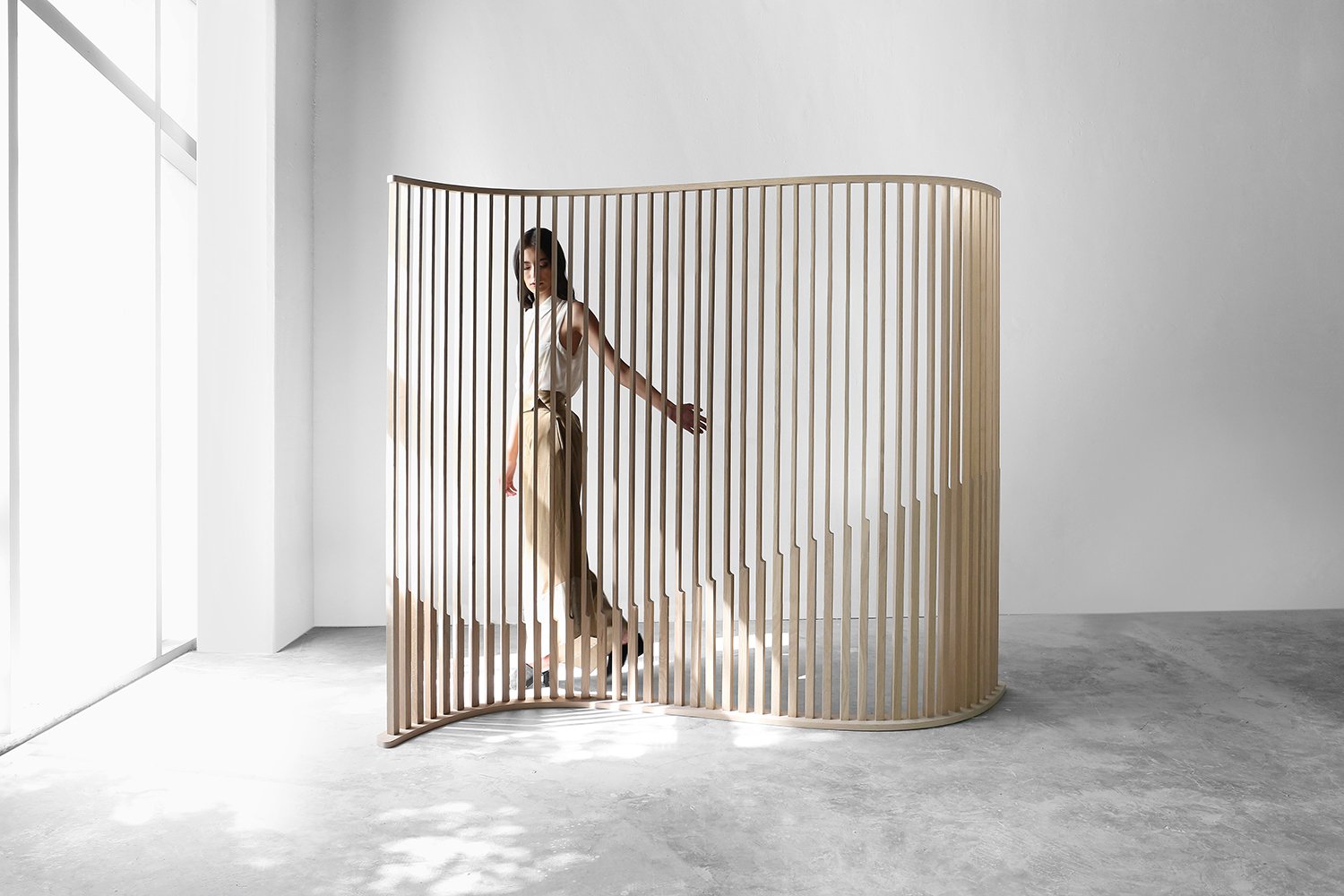1stDibs: Joel Escalona
Interview by: Cathryn Jakobson Ramin for 1stDibs
JUNE 16, 2019 Designer Joel Escalona, who founded the company NONO in 2015, in his Mexico City studio.
In the triangle that lies between Chapultepec Park and the stately boulevards and Art Nouveau mansions of La Condesa, Joel (pronounced “Ho-el”) Escalona has his studio. Reaching it means climbing a quivering spiral staircase to the fourth floor. As Escalona answers the door, he runs a hand through hair that looks as if it had already seen a long day. Then he opens his fist to reveal, fresh out of his new 3-D printer, a tiny maquette of a tiered glass bowl that the Libbey Glass Company will soon manufacture by the thousands.
At 32, ESCALONA is already one of Mexico’s top designers. He’s constantly in motion, working across disciplines, which perhaps explains why so many of his projects address the physics of movement.
Over a short span in April, for instance, he traveled to Salone Internazionale di Milano, where he exhibited with ROCHE BOBOIS and Opinion Ciatti. Back home in Mexico City, he met with his university students in industrial design programs at Centro and the Monterrey Institute of Technology and Higher Education. In between, he visited the dusty tallers — the carpentry, ceramic, glass, stone and metal workshops that dot Mexico City’s back alleys — where so many of his projects evolve from imagination to reality.
Leaving the buzz of the workroom behind, Escalona settles into his narrow office, as the blazing afternoon sun streams through a half-raised shade. It is only because he is obsessively organized, Escalona says, that he is able to achieve his creative productivity. To prove his point, he clicks through a dozen project folders on his computer, introducing me to the Laws of Motion, his new line of limited-edition collectible furniture, which debuted in February at Zona Maco in Mexico City, Latin America’s most prestigious international art and design fair.
Next up are images of his work for NONO, the company Escalona created in 2015 to distribute his designs. The MISS JOLIE VASE, made in a Mexico City workshop, twists like the funnel of a cyclone. The rotating MYDNA BOOKCASE, shaped like a strand of DNA, was created for his scientist brother, who left his books all over the apartment they shared. Then there’s ROCKY, a collection of case goods embellished with pyramids, and the BOOLEANOS CHEST OF DRAWERS stacked at precarious angles. All reflect Escalona’s abiding interest in math and physics.
The MYDNA BOOKCASE is inspired by DNA’s double helix structure and “the metaphorical statement which establishes that everything you place on its shelves defines a significant part of your personal identity,” Escalona says.
THE BALANCE COLLECTION, launched in 2018, consists of table pieces that are each composed of multiple bowls that teeter on one another’s rims, again defying the laws of equilibrium, and are fabricated in silver, copper, glass, wood, alabaster, obsidian, pewter, marble, lava stone and straw. To manufacture them, Escalona called upon his experience with the trades, craft techniques and Mexican industrial technologies that he has explored at different points in his career. As he flips through images of cracked and deformed prototypes, he tells me he’s finally perfected the process to the point of producing a new limited edition of Balance, for Opinion Ciatti, of much larger pieces, which make a dramatic statement.
The son of a nurse and an automotive painter, Escalona intended to become an engineer. But he discovered that industrial design challenged both his intellect and his creativity. “All my life,” he says, “I’ve just wanted to make beautiful and useful things, from whatever material, by whatever process.”
He leafs through a small portfolio, its loose pages filled with ink drawings executed in a steady hand. “The weekends are my creative time,” he says, “but all day long, I sketch.” He files his notebooks by year, creating a library of shapes and forms that inspire him.
That preparation paid off at the 2017 edition of Salone, where Escalona premiered his handsome DALIA CABINET for BD BARCELONA. He ran into Arturo Verástegui, owner of Mexico City–based furniture company Breuer Estudio, who orders 10 pieces from 10 Mexican designers each year to show at Zona Maco. It’s a major coup to be selected by the company, which builds custom furniture, case goods and stone work for Mexico’s renowned architects and interior designers.
But when Verástegui asked Escalona to create a single piece for 2019, he declined. “I was sweating inside,” Escalona remembers, “and I knew I was taking a risk, but I said, ‘Either I do the entire collection, or I would rather not participate, because I think it’s time that you make something more congruent, something more interesting.’ ”
Last June, Verástegui said yes to the collection. For this limited-edition series, called the Laws of Motion, Escalona explored movement, acceleration and speed as they relate to his materials as well as the human body. Tables and stools called FORCE are made of oak interrupted with a thick slice of Nero Marquina marble. “It looks strong,” Escalona says, “but if you pull out the marble piece, it will collapse. People are the same. They have their weaknesses.” Mirrors, tables, chairs and screens transform as you walk past them; what you see is different depending on where you stand.
With Laws of Motion launched, Escalona questioned whether he should leave industrial design behind and focus instead on fine furniture. “If it’s possible to be both an industrial designer making projects that will be produced in the thousands or millions and also a designer of limited-edition furniture — then that’s what I want,” he says. “With any project, as soon as I feel confident about my process, and the client, I feel like it’s time to move on, in order to maintain the excitement.”
Today, most of Escalona’s work is sold in the U.S. and Europe. That’s changing, however as affluent Mexicans in their 30s, 40s and 50s become more interested in locally designed and produced furniture with roots in the work of mid-century Mexican architects like Luis Barragán.
Montserrat “Montse” Castañón, the founder and creative director of Mexico City gallery Ángulo Cero, has worked with Escalona since 2015. “What makes Joel stand out as a creator is that he’s a perfectionist,” Castañón says. “He knows a lot about processes and materials, and he understands how to work with big companies.
“There have always been great designers, architects and artists in Mexico,” she continues. “But now the world is looking at us. Everyone wants to come to Mexico City and experience it, because Mexico is once again a cultural force.”
